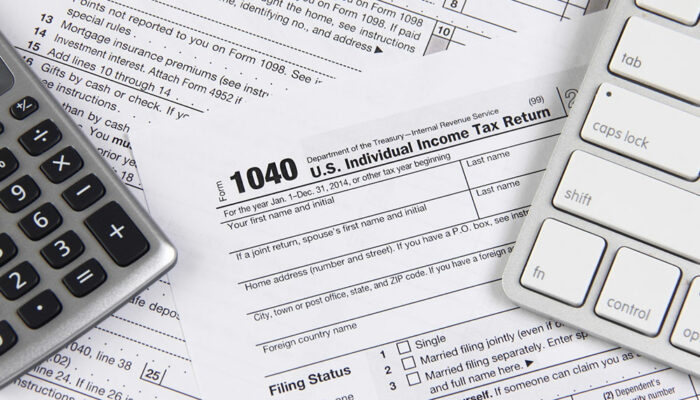7 crucial mistakes to avoid when filing for tax refunds

Filing for tax refunds is a herculean task. Navigating endless forms, doing the math, and meeting deadlines can get overwhelming. As a result, people make errors, which costs them dearly. From choosing the wrong filing status to submitting unsigned forms, we have discussed seven crucial mistakes individuals should avoid when filing for tax returns. Steering clear of these can eliminate unnecessary hassle and make the filing process smooth and seamless.
Choosing the wrong filing status
One of the most crucial mistakes taxpayers must avoid when filing their tax refunds is choosing an incorrect filing status. As per the IRS, taxpayers can choose from five filing statuses: single, head of household, married filing jointly, married filing separately, and qualifying widow (or widower). Each status has its own set of guidelines and effects. For instance, if a person is married, they must understand if they are filing jointly or separately. Filing under an incorrect status could lead them to receive a lower refund than they are eligible for. This is why selecting the correct status when filing for tax refunds is essential.
To simplify things, the IRS has provided an online tool on its website where people can find their tax filing status. Checking this tool before filing taxes or tax refunds can save one from making mistakes. Besides checking out this tool, individuals can consult a tax attorney if unsure about choosing a suitable status. Using tools and speaking to professionals can take time but helps avoid mistakes during the process.
Making mathematical errors
According to the IRS, math errors are common when filing for tax refunds. A simple mistake in addition or subtraction, or even a slight overlook in placing a decimal, can cost a taxpayer. Hence, one must check and double-check their calculations before submitting tax refund forms. The IRS also recommends using tax software or calculators to avoid such errors. Moreover, individuals should avoid filing for returns after a stressful day as one is more likely to make mistakes during this time.
Not confirming the basic details
People often fill in basic details, such as their names, incorrectly when filing for tax refunds. For accurate filing of taxes, one must write their name as per their Social Security card. One must also confirm that they have entered the correct Social Security number as printed on their card. Overlooking these details and not rechecking the form after filling it out can lead to several issues, such as delays in tax refunds or even rejection of refunds.
Filing the return too early
Many taxpayers believe that filing their tax refund forms early means they will receive their refund early, too. However, that is not the case. Filing for refunds way too early, before one receives the necessary paperwork required for filing, could lead to errors. Such errors would, in turn, delay the refund process. Hence, before individuals begin filing for a tax refund, they must first confirm if they have received all the eligible tax forms and documents. One must also take the time to remember if they have made any financial transactions that could add to their refund amount. This could include donating to a charity or an organization or beginning a new investment. Rushing the process of filing for tax refunds could cause people to forget about those activities and miss out on eligible tax refunds.
Filing the return too late
While it is important not to rush the process of filing for tax refunds, one should not miss the deadline. As per the IRS, about 20% of taxpayers in the country wait until the week before the deadline to file their refund forms. Taking the process too close to the deadline can be a huge risk. If someone misses the deadline, they might have to pay a late filing fee to the IRS, besides other penalties. Moreover, if someone is eligible for a refund, they might miss out on it. Hence, one must stick to the schedule when filing taxes and tax refunds.
Writing an incorrect account number
There are many ways to receive tax refunds after filing. One of the easiest and quickest ways is via bank transfer. For this transfer to be successful, the tax forms must have the correct account number written. If taxpayers fill in an incorrect account number in haste or due to a common oversight, they might lose their refunds. Therefore, individuals must double-check such sensitive information before submitting their tax forms. If one has missed a digit, entered an incorrect digit, or entered an extra digit in their account number, they might miss out on their rightfully deserved refunds.
Submitting unsigned forms
Whether filing tax refund forms online or via paper, taxpayers must ensure they have signed them before submission. When filling out the forms online, one should check whether they have provided a digital signature. Besides this, taxpayers must also check if the form requires their spouse’s signatures. Submitting a form without proper signatures is deemed invalid by the IRS. A simple yet useful way to avoid oversights is to ask someone else to review the form before submission.





